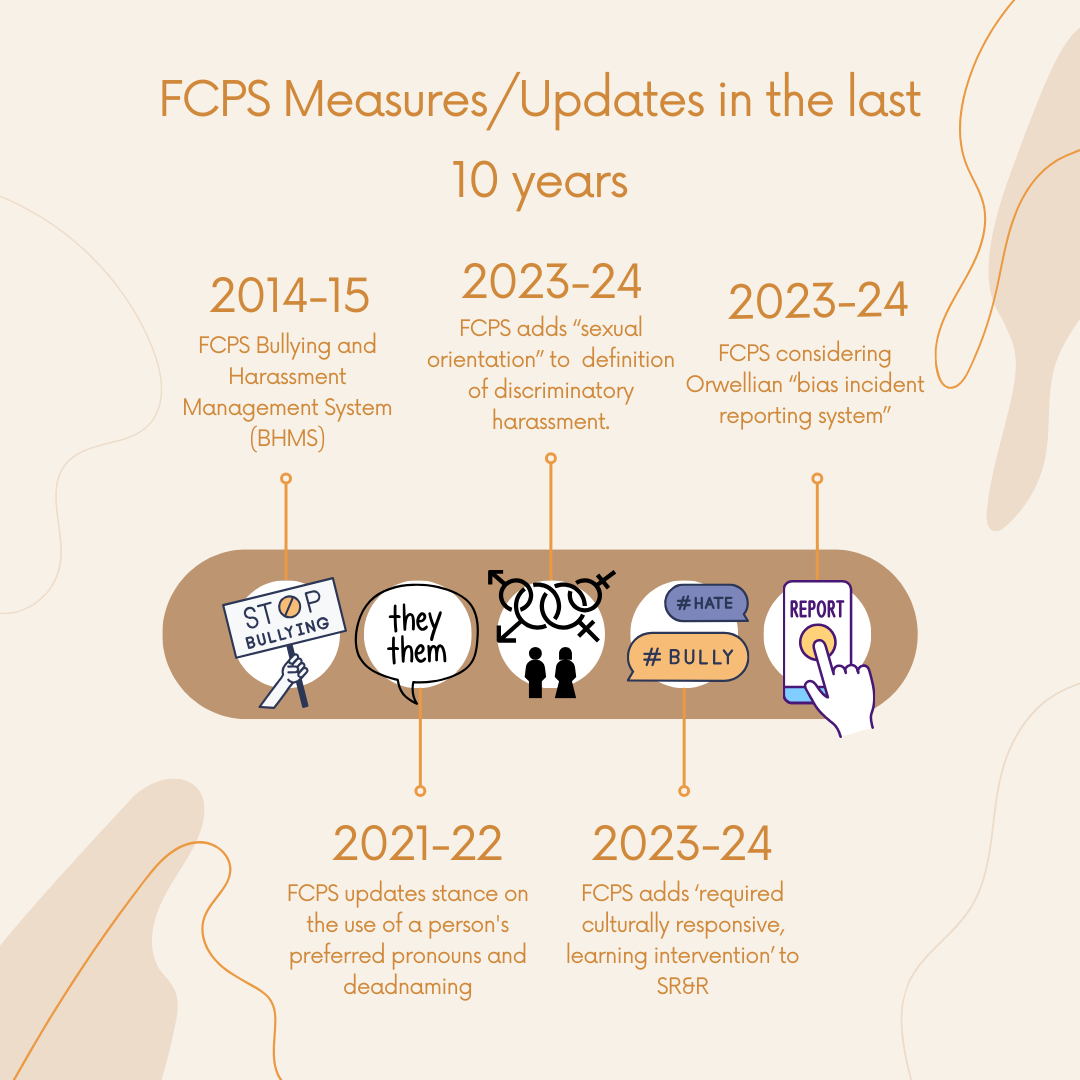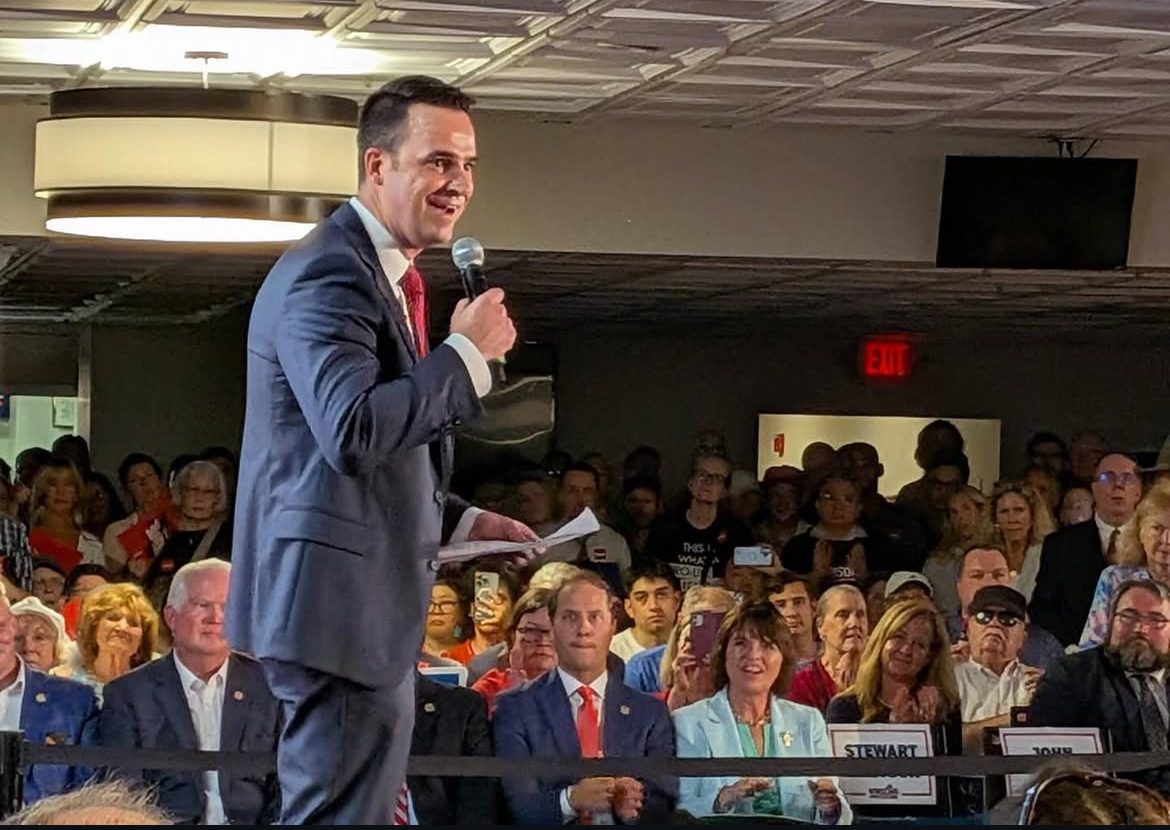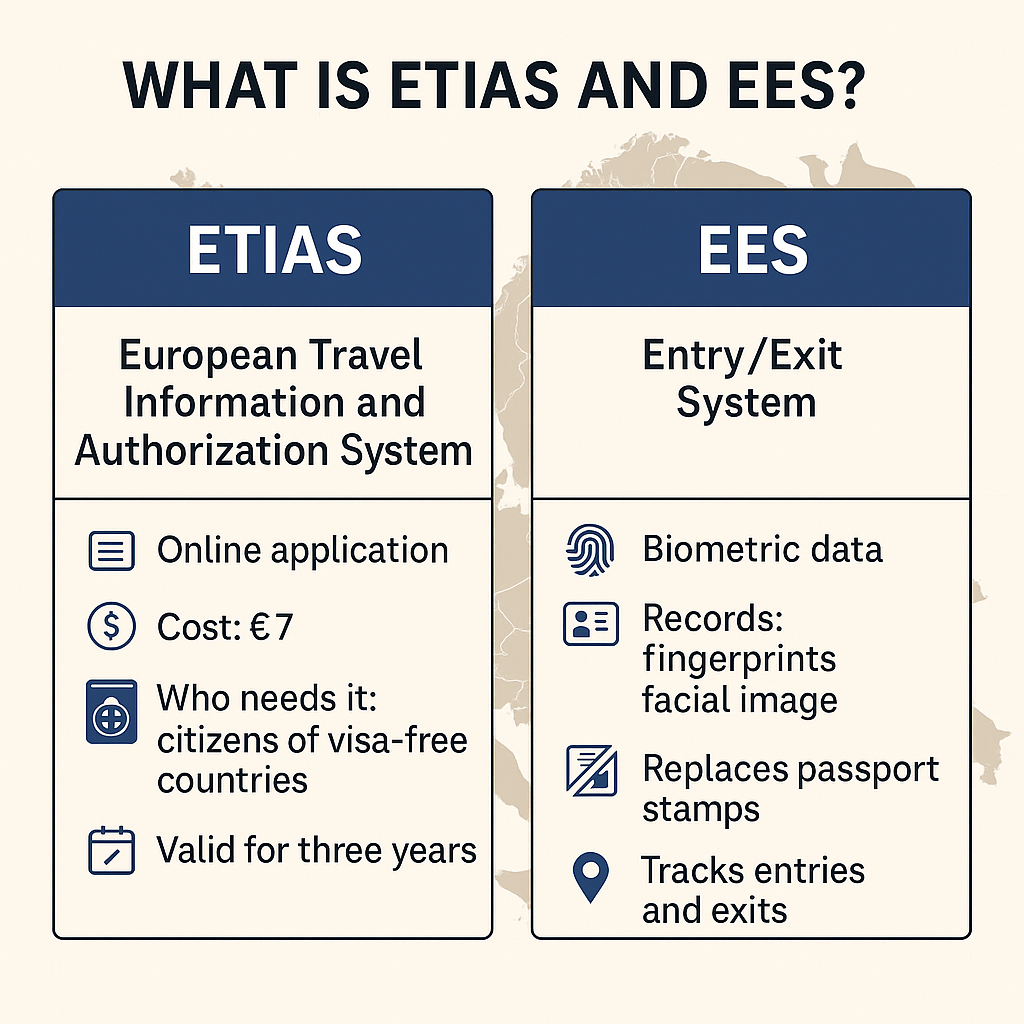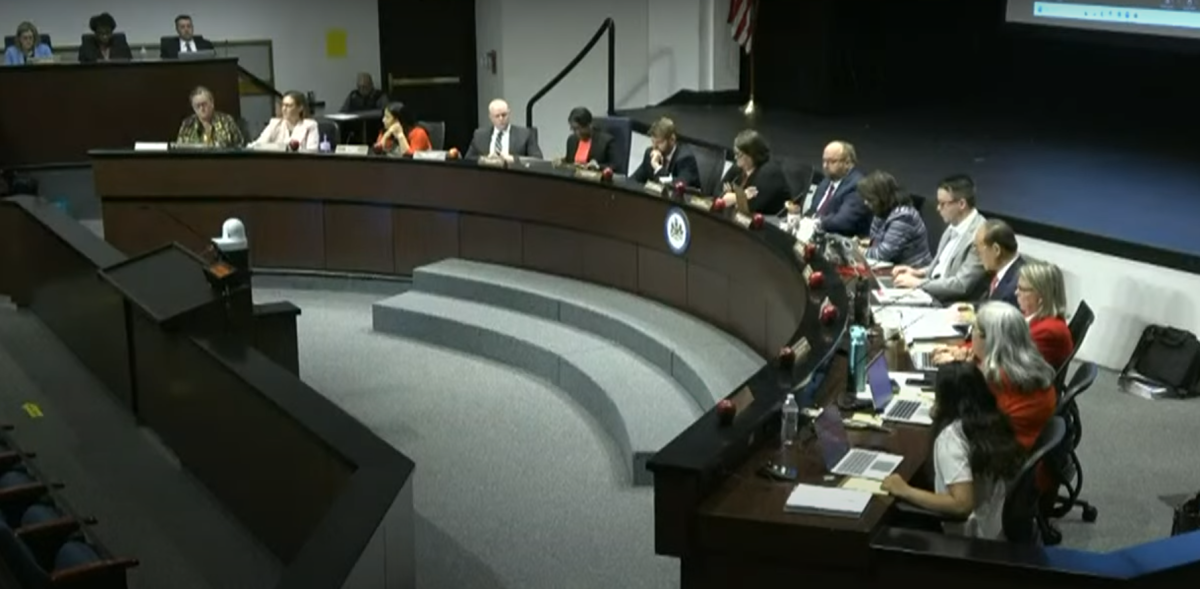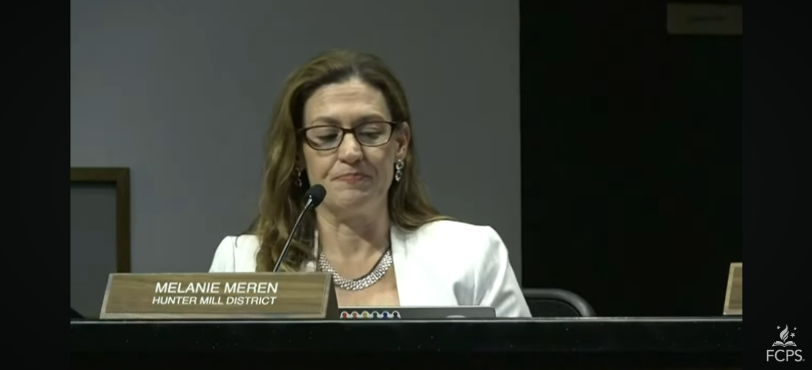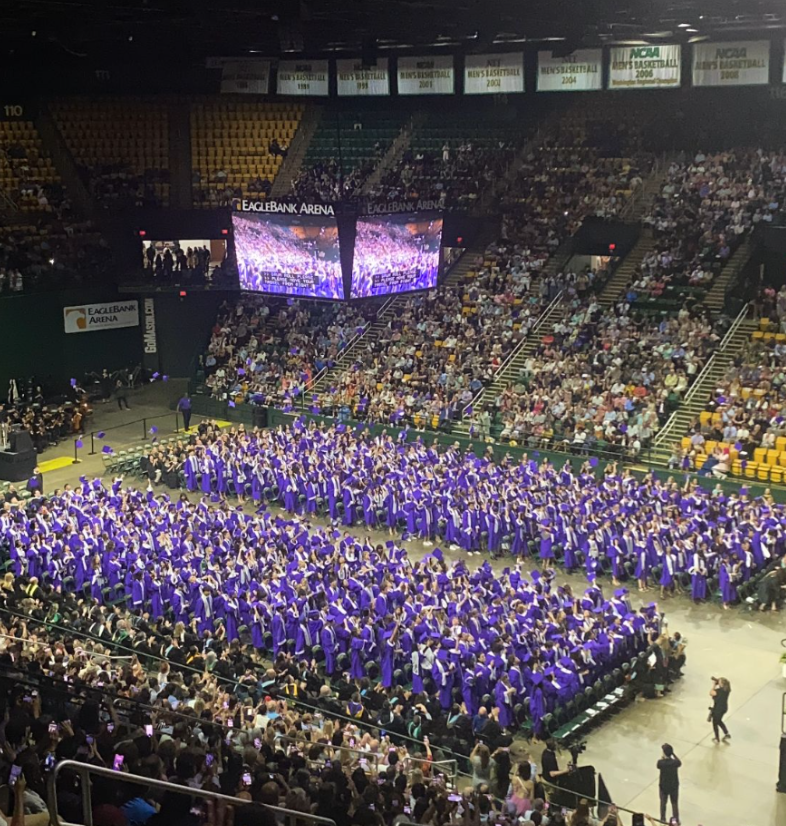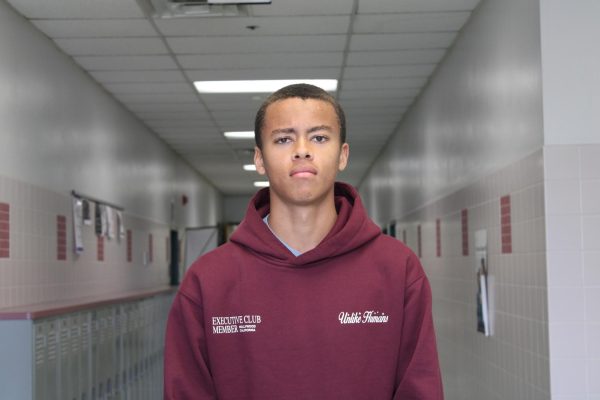Bang, bang, bang. The sound of the gavel echoes throughout the U.S. Court of Appeals for the 4th Circuit as the case is settled. The decision by the fourth circuit allowed parents to pursue a First Amendment lawsuit. Three years later in FCPS, a similar debate over a similar system ensues.
The 2023-24 FCPS SR&R has updated its code of conduct to include new regulations on the disciplinary measures for hate speech. This comes after the FCPD 2018-2020 Bias Crime and Incident Report showed a 65.8% increase over the previous three years. The new regulations will obligate students with first time hate speech infractions to participate in a “required culturally responsive, learning intervention.”
“I definitely think that some sort of intervention style, punishment or treatment, is a very necessary thing,” junior Amelia Marsh said. “But sometimes people have trouble still conforming, even after those things. So, I definitely think it’s something that teachers should be aware of if a student has that type of violation of student misconduct.”
A study by Cameron A. Hecht, David S. Yeager, Carol S. Dweck, and Mary C. Murphy showed that learning interventions related to long-standing beliefs can be effective—specifically “wise” interventions, which are interventions that aim to change one’s mindset in order to improve behavior. However, not everyone believes in the efficacy of the interventions.
“I don’t think that [the measures] are completely necessary,” sophomore Nishanth Vadlamani said. “I don’t think that sitting in a room and educating [students] that way will change long standing beliefs. It’s a good effort, but I don’t think it’ll be that useful.”
Others argue, however, that some changes are necessary now more than ever. A recent incident on Oct. 10 in which an anti-semitic symbol was written in graffiti in a parking lot across CHS prompted Dr Goodloe to email an official statement on Oct. 11 condemning acts of hate speech in FCPS schools and deeming it “unacceptable that any student feels that this is appropriate behavior,” However, instances of “casual” hate speech—a more passive or “not-so-serious” type of hate speech—have been common throughout the school for a long time.
“You hear some of the casual racism jokes, and those always bother me,” Marsh said. “But it’s hard to call them out because sometimes it’s made by people of those same races. So they just sort of criticize you more than anything else when you try to call them out for it.”
Some fear that many of these new changes and systems may restrict FCPS students’ free speech. Earlier this year, FCPS had considered adding a bias incident reporting system to its code of conduct, a system similar to the one adopted by Loudoun County, which is currently being sued by parents who claim that the policy violates students’ First Amendment rights.
“We have to consider if speech is disruptive to teaching and learning,” history teacher Britannye Mohrbacher said. “Then, it probably warrants speech being limited to some extent, because we need to protect our students [so that they] feel like they have a safe and supportive learning
environment, and can be successful.”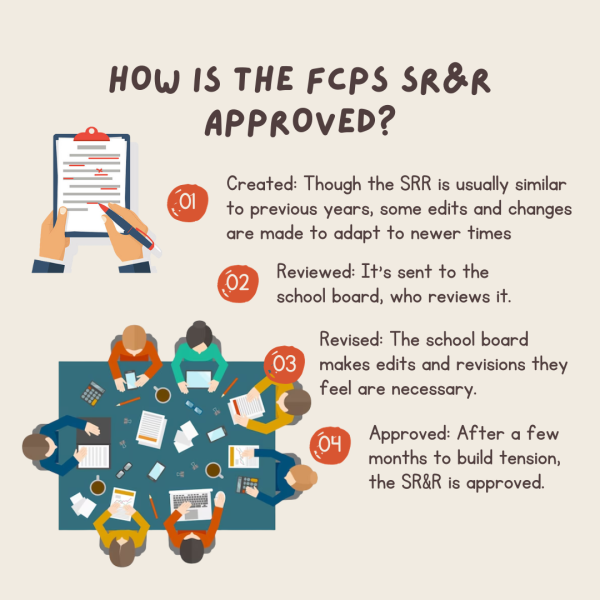
As part of their Cultivate Equitable and Culturally Responsive Practices plan, FCPS’ goal is to “create and maintain identity affirming spaces where students report a sense of belonging” by the 2025-26 school year per FCPS.
“Anytime we can promote a strong school climate [we should] promote the safety and well being of students, especially considering how students have been impacted by COVID-19 and having mental health issues,” Mohrbacher said. “So with those things in mind, I feel like it’s important for us to recognize issues that may come up that might impact students socially and emotionally and address them.”


